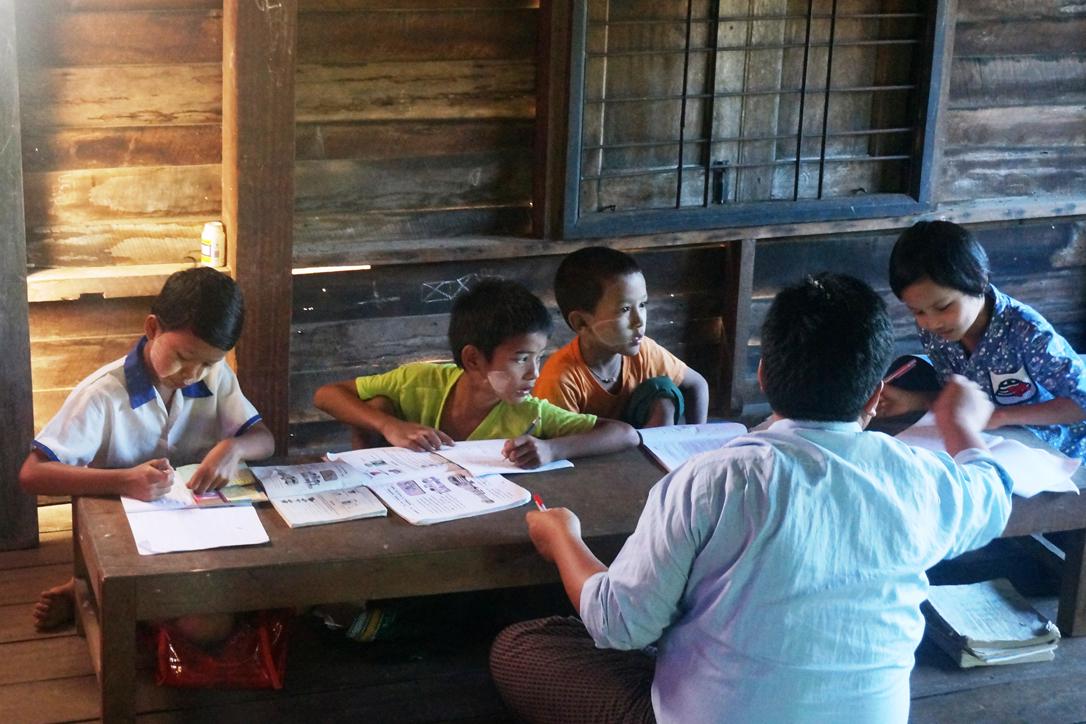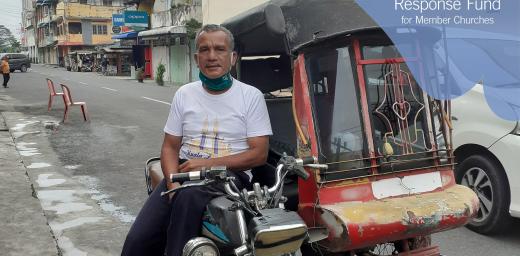Healing wounds of isolation and deprivation

Thanks to the work of the Lutheran churches in Myanmar, children from marginalized communities can go to school and aspire to a brighter future. Photo: LWF/I. Dorji
Myanmar Lutheran churches contribution to education in the country
(LWI) - Shwe Lone wanted to go to school so he could help his congregation with its spiritual and community work in the village of Pyaingcho in Myanmar - but he wasn’t sure how it could happen.
“One day an old man told me to attend the Bible school in Yangon. But, I had no money for my studies. God knew my desires. God opened the door to my life in 2015 to study at the lay leaders training program in Yangon. Now I’m ready to go and assist my pastor,” the 20-year-old said.
The Myanmar Lutheran Church (MLC) runs the training program with support from The Lutheran World Federation (LWF). It is one of the first LWF projects in the country targeting small vulnerable churches at a time of great change.
LWF is providing EUR 51,700 for three years for the church’s eight-month training program for 27 lay leaders on spiritual and practical issues including Bible studies, community building and organic farming.
Myanmar is experiencing major political transition. After decades of military rule, for the first time since 1990 the country held open elections on 8 November. Aung San Suu Kyi’s National League for Democracy gained a majority in parliamentary and presidential voting.
While this political evolution offers hope of a brighter future, the socio-economic situation in Myanmar remains critical and living standards have remained unchanged for most of the population.
“Previous international isolation and inadequate economic policies have left open wounds that will be difficult to heal,” said Ilona Dorji, LWF secretary for project coordination and monitoring at the Department for Mission and Development (DMD), during an assessment visit to projects implemented by the four LWF member churches in Myanmar.
The Lutheran Church of Myanmar (LCM) runs the Educational Rights for Marginalized Children project, which promotes education, helps children of marginalized communities attend school and advocates for their rights.
“It is a very positive contribution to the cause for education in the country,” Dorji said of the LCM- managed Hope Education Center, which the LWF supports with EUR 44,800 over a period of three years.
In Myanmar, public school teachers provide after-school tuition in order to help children get better results and also supplement their income. LWF pays the salary of five teachers at the center which provides free afterschool classes five days a week for 25 children and kindergarten classes for 15 children.
“These are just some concrete examples of how the LWF affirms its strong commitment to small and vulnerable grassroots churches to build their capacity. This is what our worldwide Lutheran communion is all about, supporting one another,” Dorji said.
Thein Aye, an 18-year-old who was displaced from her village because of the armed conflict between the Arakan rebels and the government troops, is thankful for such interventions by the MLC, which paid for her transport.
“I came here with an empty but sincere heart to study His words and to share about His love to the nations (…) and I’m so thankful to you for supporting this training,” she told the LWF team.
The four LWF member churches also include the Mara Evangelical Lutheran Church and the Evangelical Lutheran Church in Myanmar (Lutheran Bethlehem Church), which altogether have around 28,000 members.





